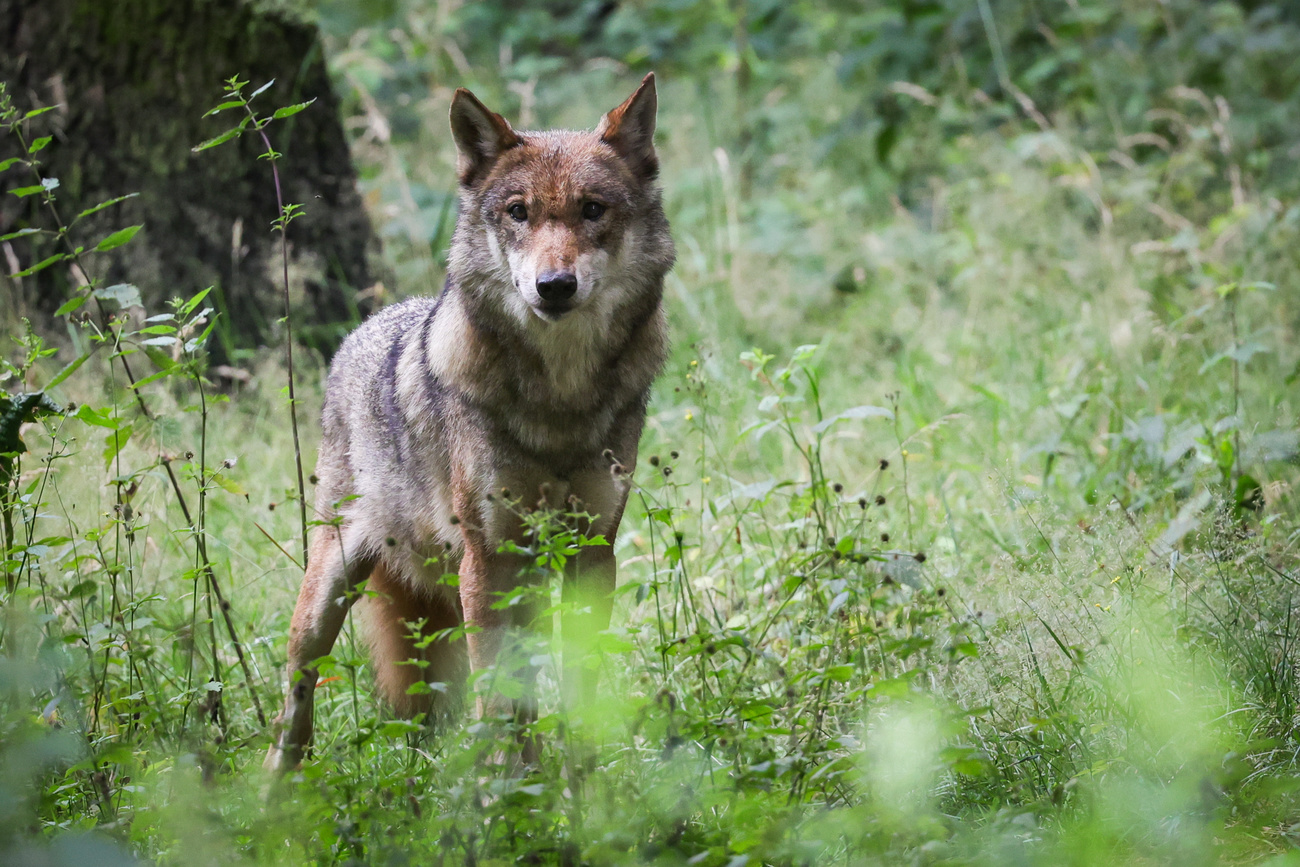
Switzerland criticised over wolf shootings

Switzerland has been slapped on the wrist by the Bern Convention office of the Council of Europe for its wolf policy. It argues preventatively shooting wolves because of “potential damage” is a misinterpretation of this wildlife protection text.
+Get the most important news from Switzerland in your inbox
Only serious damage caused by wolves can lead to shootings, the Bern Convention office recalled in a letter published on Friday.
The Bern Convention is an international law treaty of the Council of Europe that aims to protect wildlife. The Swiss wolf protection association CHWolf filed an appeal with the Bern Convention in December 2023 against Switzerland’s wolf regulation policy. The Bern Convention office considered the complaint in September and issued its decision on Friday.

More
Swiss wolf culls designed to protect livestock and people
In its letter, the office also expressed concern about inaccurate monitoring of damage caused by wolves. Switzerland has not yet been condemned. The office will submit the case to the standing committee in December.
Another cause for concern according to the letter is the threshold set by the Swiss government for the number of packs in Switzerland. It is considered “arbitrary”. Added to the possible cumulative effect of a “politically motivated” regulatory policy, this threshold of twelve packs could lead to large-scale culling.
CHWolf’s president, Christina Steiner, also sees a political motivation behind the shootings. Steiner believes that the regulatory policy is not based on scientific grounds.
The legal basis for preventive shootings is part of the revised Hunting Act. It came into force in November 2023 for a limited period. In addition, the office is also concerned about the alleged manipulation of data in order to justify new culls.
It was against these provisions that CHWolf filed a complaint. The government was then given the opportunity to take a position. The federal authorities responded that the proactive regulation of packs was intended to instill fear of humans and their activities in the surviving wolves.
Translated from German by DeepL/jdp
This news story has been written and carefully fact-checked by an external editorial team. At SWI swissinfo.ch we select the most relevant news for an international audience and use automatic translation tools such as DeepL to translate it into English. Providing you with automatically translated news gives us the time to write more in-depth articles.
If you want to know more about how we work, have a look here, if you want to learn more about how we use technology, click here, and if you have feedback on this news story please write to english@swissinfo.ch.

In compliance with the JTI standards
More: SWI swissinfo.ch certified by the Journalism Trust Initiative






























You can find an overview of ongoing debates with our journalists here . Please join us!
If you want to start a conversation about a topic raised in this article or want to report factual errors, email us at english@swissinfo.ch.